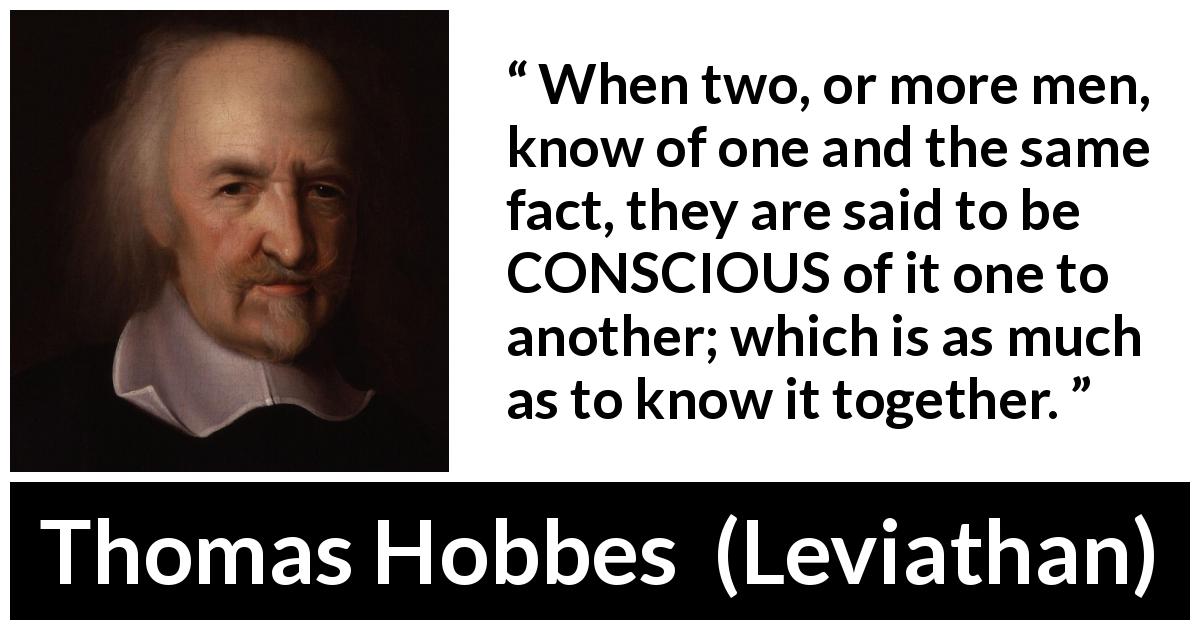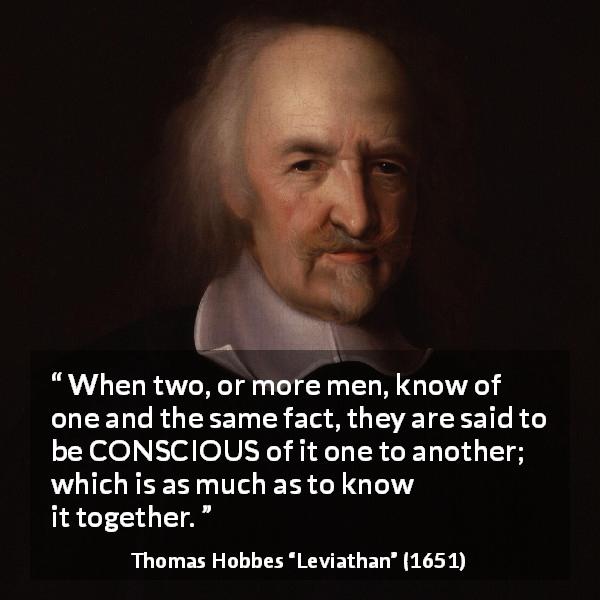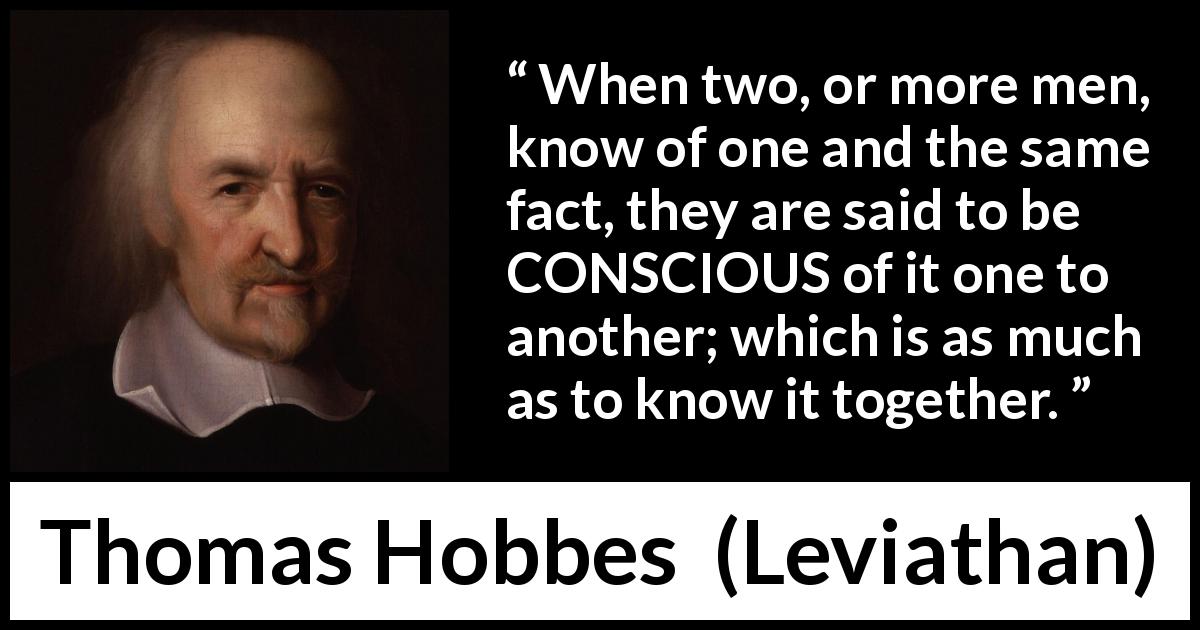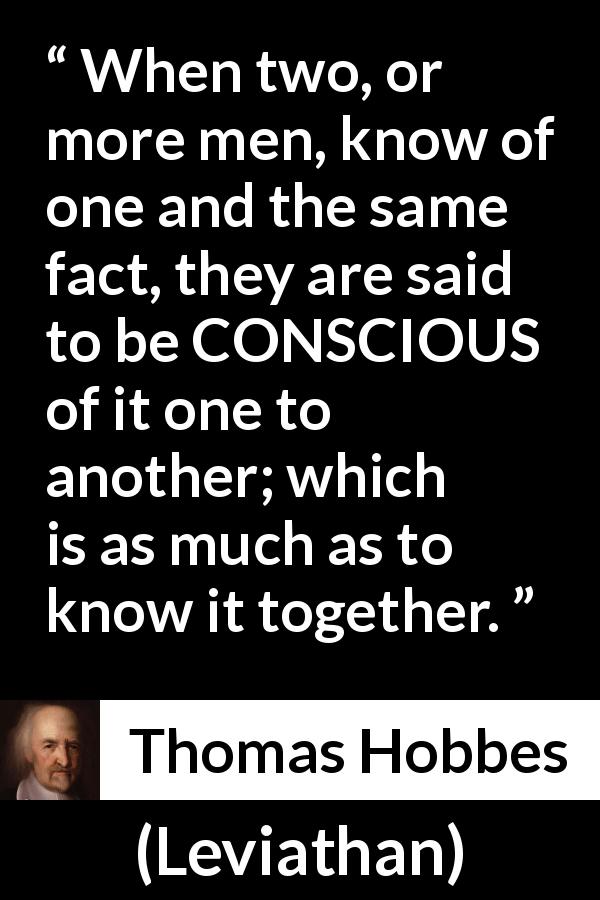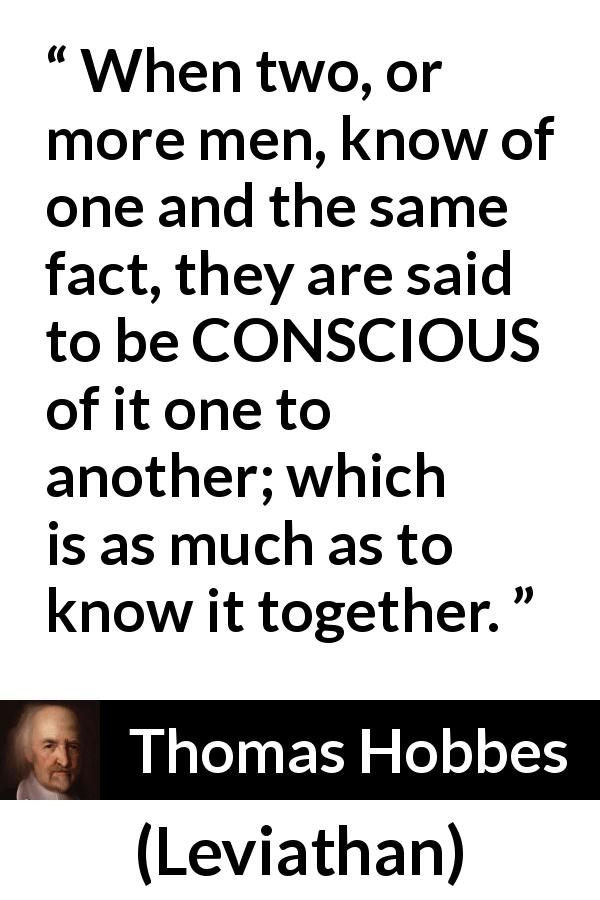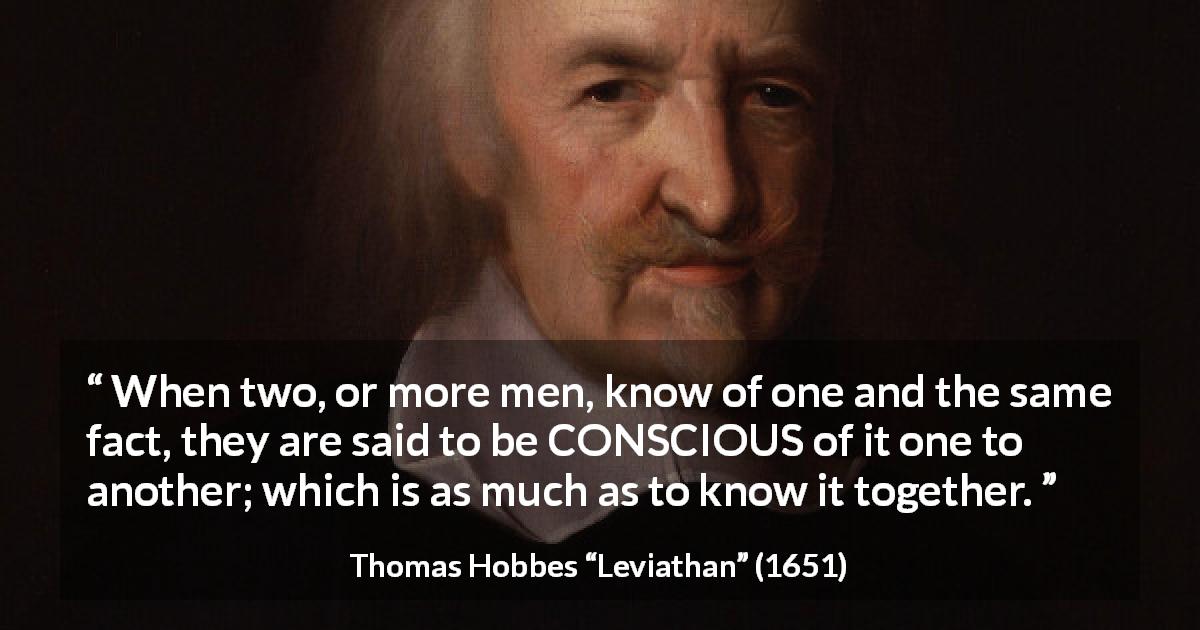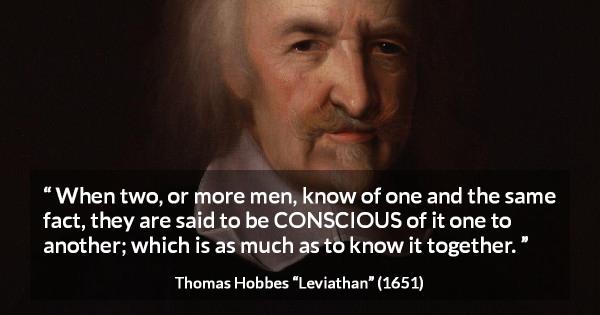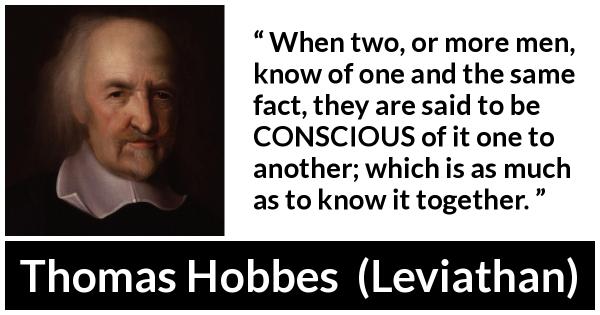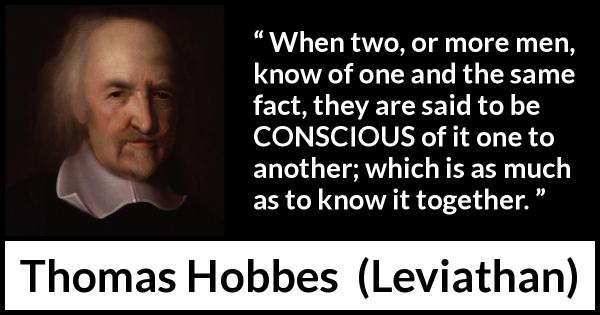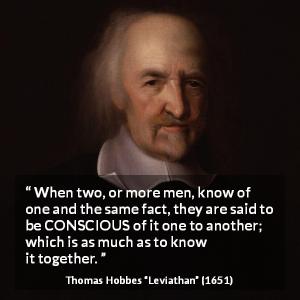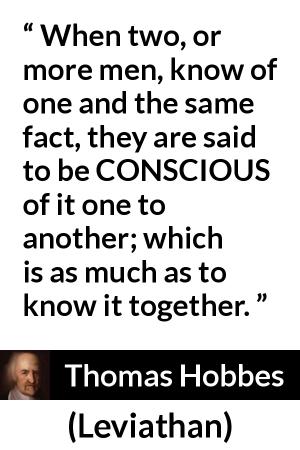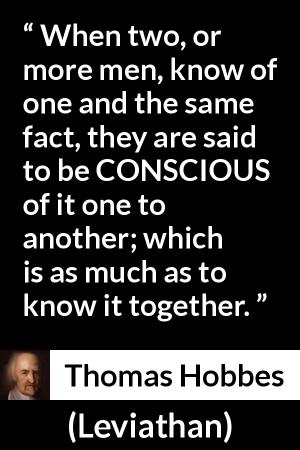“ When two, or more men, know of one and the same fact, they are said to be CONSCIOUS of it one to another; which is as much as to know it together. ”
Thomas Hobbes, Leviathan (1651). copy citation
| Author | Thomas Hobbes |
|---|---|
| Source | Leviathan |
| Topic | knowledge fact |
| Date | 1651 |
| Language | English |
| Reference | |
| Note | |
| Weblink | http://www.gutenberg.org/files/3207/3207-h/3207-h.htm |
Context
“But if the first ground of such Discourse be not Definitions, or if the Definitions be not rightly joyned together into Syllogismes, then the End or Conclusion is again OPINION, namely of the truth of somewhat said, though sometimes in absurd and senslesse words, without possibility of being understood. When two, or more men, know of one and the same fact, they are said to be CONSCIOUS of it one to another; which is as much as to know it together. And because such are fittest witnesses of the facts of one another, or of a third, it was, and ever will be reputed a very Evill act, for any man to speak against his Conscience; or to corrupt or force another so to do: Insomuch that the plea of Conscience, has been always hearkened unto very diligently in all times.”
source
